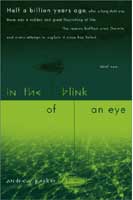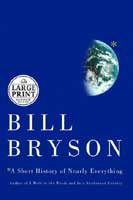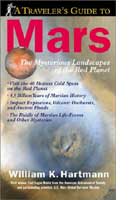At the moment I am reading three different books, all great, and I want to share them with you. Well, to be specific I am not actually reading any of them right now, I'm typing, but you know what I mean.
 First up we haveIn the Blink of an Eye, by Andrew Parker. This is a fantastic presentation of Parker's theories about the Cambrian explosion. First he explains that all the animal phyla currently on earth actually evolved before the Cambrian period (about 525M years ago). The "explosion" was actually a sudden evolution of "hard" parts by animals in many different phyla, with a consequent huge increase in the number of species. He suggests this evolution was triggered by the strong selective pressure caused by the development of eyes, which made predators suddenly more effective. In the process he takes us through a wonderful tour of the history of life on Earth, spiced with delightful anecdotes about ancient animals and the humans who tried to figure them out. Parker doesn't write very well - he is a scientist, not a novelist - but the overall effect is charming rather than deterring, and his style doesn't get in the way of the facts. You can tell he had to really work to avoid diving into too much scientific detail, but he made it. (He also an Aussie, and that comes through in his style, too; I can just about hear his accent...) There are also lots of great diagrams of animals and their various strategies for survival. Highly recommended. First up we haveIn the Blink of an Eye, by Andrew Parker. This is a fantastic presentation of Parker's theories about the Cambrian explosion. First he explains that all the animal phyla currently on earth actually evolved before the Cambrian period (about 525M years ago). The "explosion" was actually a sudden evolution of "hard" parts by animals in many different phyla, with a consequent huge increase in the number of species. He suggests this evolution was triggered by the strong selective pressure caused by the development of eyes, which made predators suddenly more effective. In the process he takes us through a wonderful tour of the history of life on Earth, spiced with delightful anecdotes about ancient animals and the humans who tried to figure them out. Parker doesn't write very well - he is a scientist, not a novelist - but the overall effect is charming rather than deterring, and his style doesn't get in the way of the facts. You can tell he had to really work to avoid diving into too much scientific detail, but he made it. (He also an Aussie, and that comes through in his style, too; I can just about hear his accent...) There are also lots of great diagrams of animals and their various strategies for survival. Highly recommended.
 Next we have A Short History of Nearly Everything, by Bill Bryson. Where Parker is a scientist but not a great writer, Bryson is a great writer but not a scientist. Rather than struggling to contain the level of detail, Bryson works hard to avoid too shallow a treatment, but his wonderful folksy style and thorough research make the book work. This book is essentially a tour through the development of the universe, picking up as many random facts about as many physical things as possible. Bryson takes a delight not only in the facts themselves, but in the intricate chains of reasoning required to find them, and the people who did the finding. Means of quantification are particularly treasured (e.g. just how hot is the center of the Earth, and how do we know?) I'm enjoying this book a lot, Bryson's obvious enthusiasm carries me along even when the subject matter gets a bit dry. Next we have A Short History of Nearly Everything, by Bill Bryson. Where Parker is a scientist but not a great writer, Bryson is a great writer but not a scientist. Rather than struggling to contain the level of detail, Bryson works hard to avoid too shallow a treatment, but his wonderful folksy style and thorough research make the book work. This book is essentially a tour through the development of the universe, picking up as many random facts about as many physical things as possible. Bryson takes a delight not only in the facts themselves, but in the intricate chains of reasoning required to find them, and the people who did the finding. Means of quantification are particularly treasured (e.g. just how hot is the center of the Earth, and how do we know?) I'm enjoying this book a lot, Bryson's obvious enthusiasm carries me along even when the subject matter gets a bit dry.
I am actually reading this as an e-book, using Microsoft Reader; the first time I have ever done so. Overall I don't like the on-screen reading experience as much as a "real" book (it is tough to take my monitor into the bathroom), but the software works and I found myself basically disappearing into the book. This is the wave of the future, we just need better reading devices...
 Finally we have A Traveler's Guide to Mars, by William Hartmann. This is really three books in one, deftly woven together. First there's a data dump of everything which is known about Mars, including the history of what we knew and when we knew it (and why). There are tons of great maps and photographs, including many in full color from the recent Mars Global Surveyor Spacecraft mission. Second there is a whimsical series of sidebars patterned on a standard travelogue; "What to Wear: Martian Weather", "Telling Time on Mars", "How Ice Behaves on Mars", etc. These are great because they really emphasize the differences between Earth and Mars, and ironically make the possibility of near-term human landings on Mars seem less remote. Finally there is Hartmann's personal series of anecdotes ("My Martian Chronicles"); in addition to livening up the story, they give him a real sense of authority. I'm enjoying this book on two levels, first, I am learning a lot about Mars, and second, I am excited by the prospect of human planetary travel. As Hartmann says, viewing the Earth from Mars makes you realize that with all our cultural differences and problems, we're one species alone in a vast universe. Inter-planetary travel may ultimately be our greatest accomplishment. Finally we have A Traveler's Guide to Mars, by William Hartmann. This is really three books in one, deftly woven together. First there's a data dump of everything which is known about Mars, including the history of what we knew and when we knew it (and why). There are tons of great maps and photographs, including many in full color from the recent Mars Global Surveyor Spacecraft mission. Second there is a whimsical series of sidebars patterned on a standard travelogue; "What to Wear: Martian Weather", "Telling Time on Mars", "How Ice Behaves on Mars", etc. These are great because they really emphasize the differences between Earth and Mars, and ironically make the possibility of near-term human landings on Mars seem less remote. Finally there is Hartmann's personal series of anecdotes ("My Martian Chronicles"); in addition to livening up the story, they give him a real sense of authority. I'm enjoying this book on two levels, first, I am learning a lot about Mars, and second, I am excited by the prospect of human planetary travel. As Hartmann says, viewing the Earth from Mars makes you realize that with all our cultural differences and problems, we're one species alone in a vast universe. Inter-planetary travel may ultimately be our greatest accomplishment.
|


|




